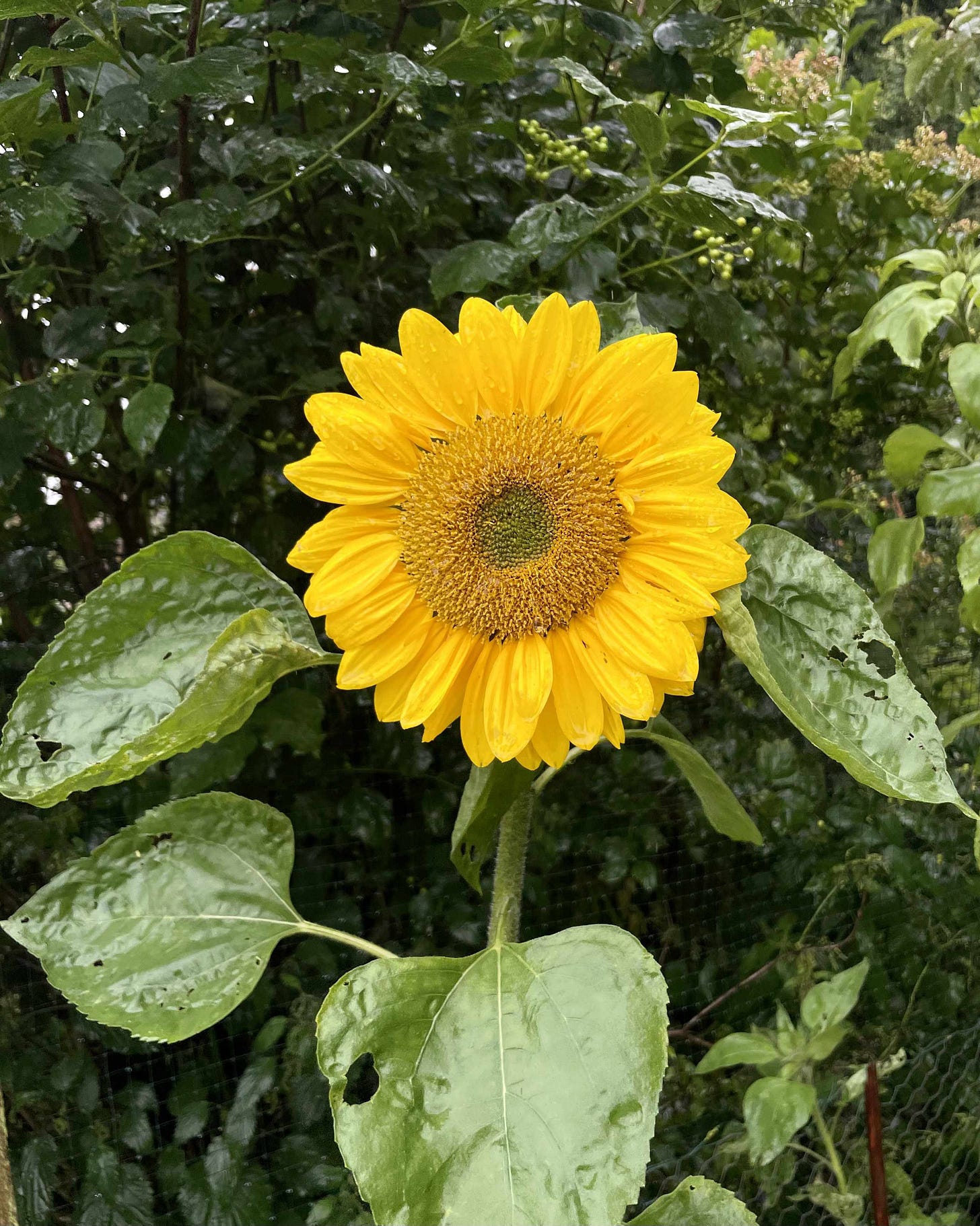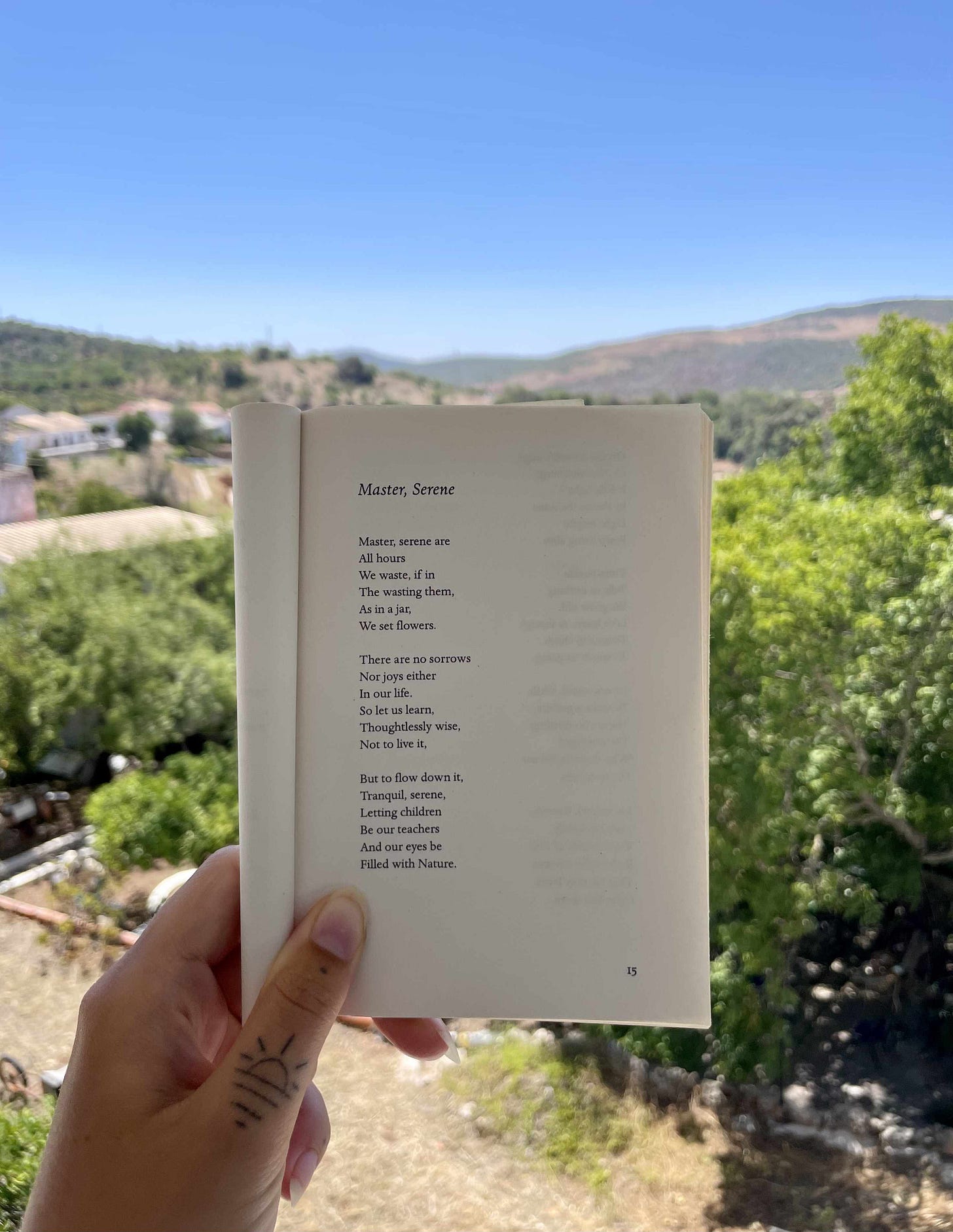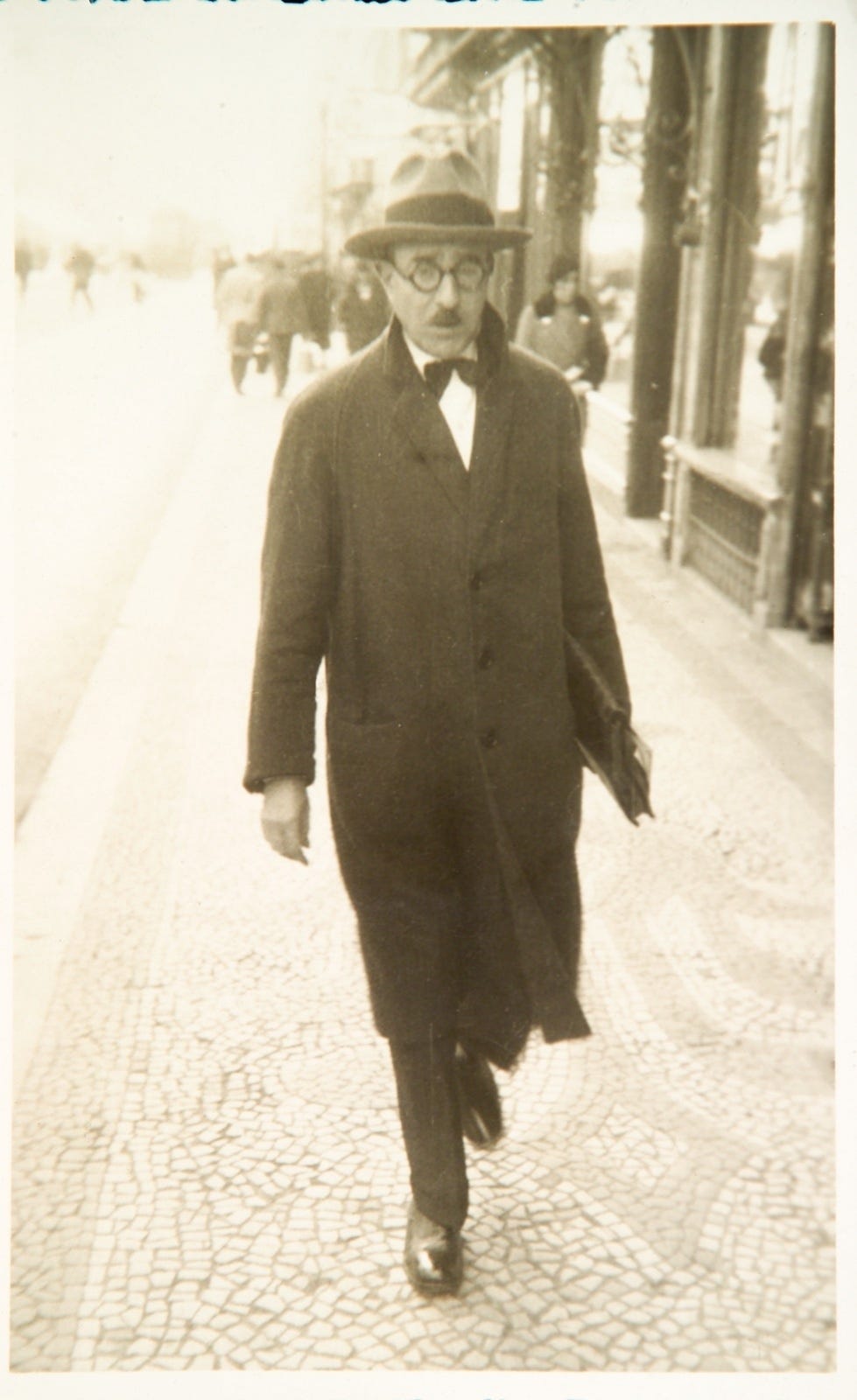19. Sunflowers Ever Eyeing the Sun
A rainy day hello and a poem from the great Fernando Pessoa
Hello dearest reader,
Happy Sunday, and welcome to today’s Red Campion Post. I hope you this piece of correspondence finds you most well, wherever you may be in the world.
I have returned to a rain-soaked England, arriving home alone from Portugal to an unusually empty house last night. All is still and very quiet, save for the sound of the rain beating against the windowpanes. The garden beyond the drizzle-daubed glass is drenched and overgrown. A wild, many-coloured tangle of soggy intrigue and curiosities.

Many jobs await me out there in the dampness of the garden, an endless to-do list that must be embraced with patience and care. However, looking out of my window into the acreage of wet wilderness, I am certain that if I set foot into the perfect, green chaos of the garden, I may never return, and shall be found several months down the line tangled in the undergrowth, when the gradual die-back begins in Autumn time. The coverlet of plant-life peeled away to reveal things long forgotten: a misplaced pair of miniature tomato-red secateurs; a coffee cup gone astray during a languid Sunday morning in May; several empty beer bottles and a twist of twine. And me, green-stained skin and covered in creeping moss. Swallowed into the arms of the gargantuan plants, my body reclaimed by the romping wildness. Wet, wet earth. If I fail to write next Sunday, perhaps someone could be so kind as to send out a search party, just incase.
Rain-soaked garden talk aside, I have a little poetic offering to share with you here. Having taken my small collection of Fernando Pessoa poems away with me to read during my trip, I have selected one to share with you here, today. A prized gift of lyrical peace from the great Portuguese writer. An artist who spun words into worlds, enchanting the hearts of so many with a creative universe that is alive with vast multitudes and mystery. I do hope you enjoy the poem, and may carry its quiet atmosphere with you through the rest of your day.
Please do be kind and gentle with yourself.
Until next Sunday,
Anna Margarita
x
A poem: Master, Serene by Fernando Pessoa, 1914.
Master, Serene
Master, serene are
All hours
We waste, if in
The wasting them,
As in a jar,
We set flowers.
There are no sorrows
Nor joys either
In our life.
So let us learn,
Thoughtlessly wise,
Not to live it,
But to flow down it,
Tranquil, serene,
Letting children
Be our teachers
And our eyes be
Filled with Nature.
On the stream's edge,
On the road verge,
It falls right -
In always the same
Light respite
From being alive.
Time passes,
Tells us nothing.
We grow old.
Let's learn, as though
Tongue in cheek,
To watch us going.
It's not worth while
To make a gesture.
There's no resisting
The cruel god
Who devours forever
His own sons.
Let us pick flowers,
Let's dip lightly
These hands of ours
In the calm streams,
That we may learn
Calm like them.
Sunflowers ever
Eyeing the sun,
From life let's go
Tranquilly, not have
Even the remorse
Of having lived.
12.06.1914

Pessoa: An Artist of Vast Multitudes
It is often said that the four greatest Portuguese poets are Fernando Pessoa. This figures, seeing as though Pessoa - whose name in fact means ‘person’ in the Portuguese language - represented not only one writer, but many.
For, you see, Fernando Pessoa - who was born in Lisbon on June 13th, 1888 - wrote not only in his own name, but also in the names and guises of three alter egos or ‘heteronyms’, as he called them, all of whom penned works in their own unique voice and style. In truth, Pessoa actually wrote compulsively under an almost inexhaustible list of names, although it is Alberto Cairo, Ricardo Reis and Álvaro de Campos who were given the true gift of life by Pessoa. Fleshed out into full-fledged individuals, with thoughts, temperaments, views, ideas and works that were uniquely their own. As such, it is important to note that Pessoa wrote and published our poem for today, Master, Serene under the name of Ricardo Reis.
Although he was widely respected on the vibrant literary and intellectual scenes in Lisbon during his lifetime, Pessoa’s literary genius was largely unrecognised until after his death, although he himself was always certain of it. Today, the complex and vast universe of his work is still being slowly charted by dedicated researchers and archivists, with a great deal of writing still awaiting publication.





